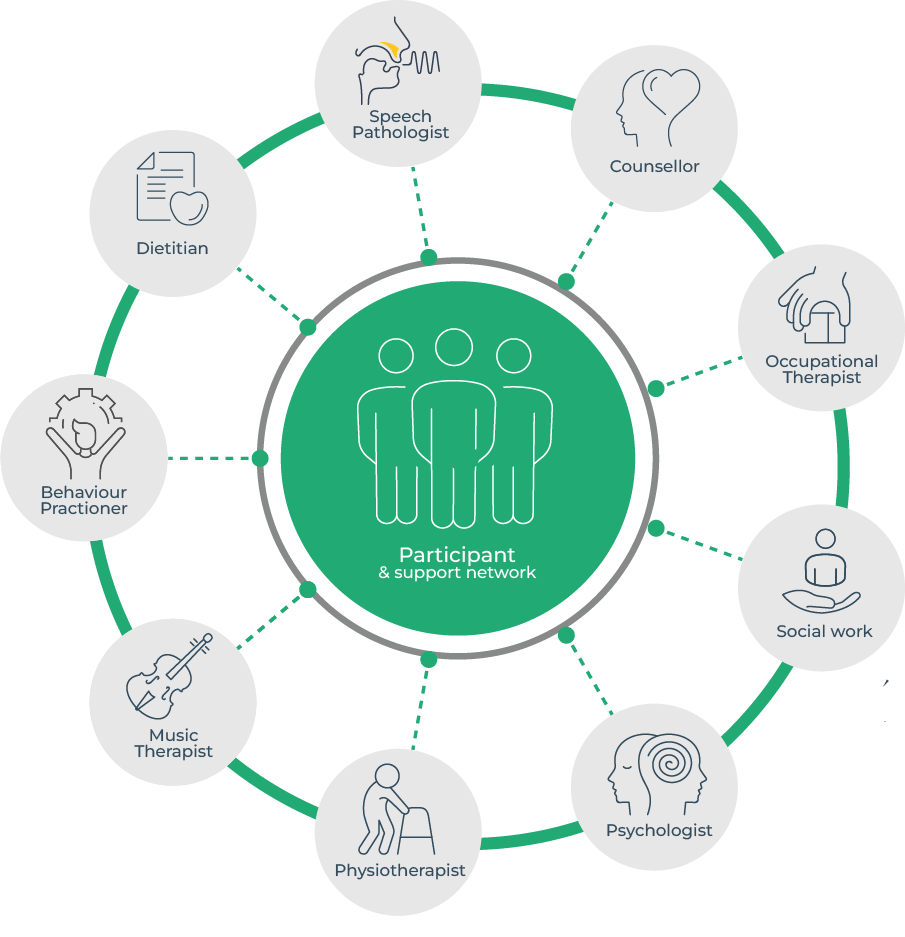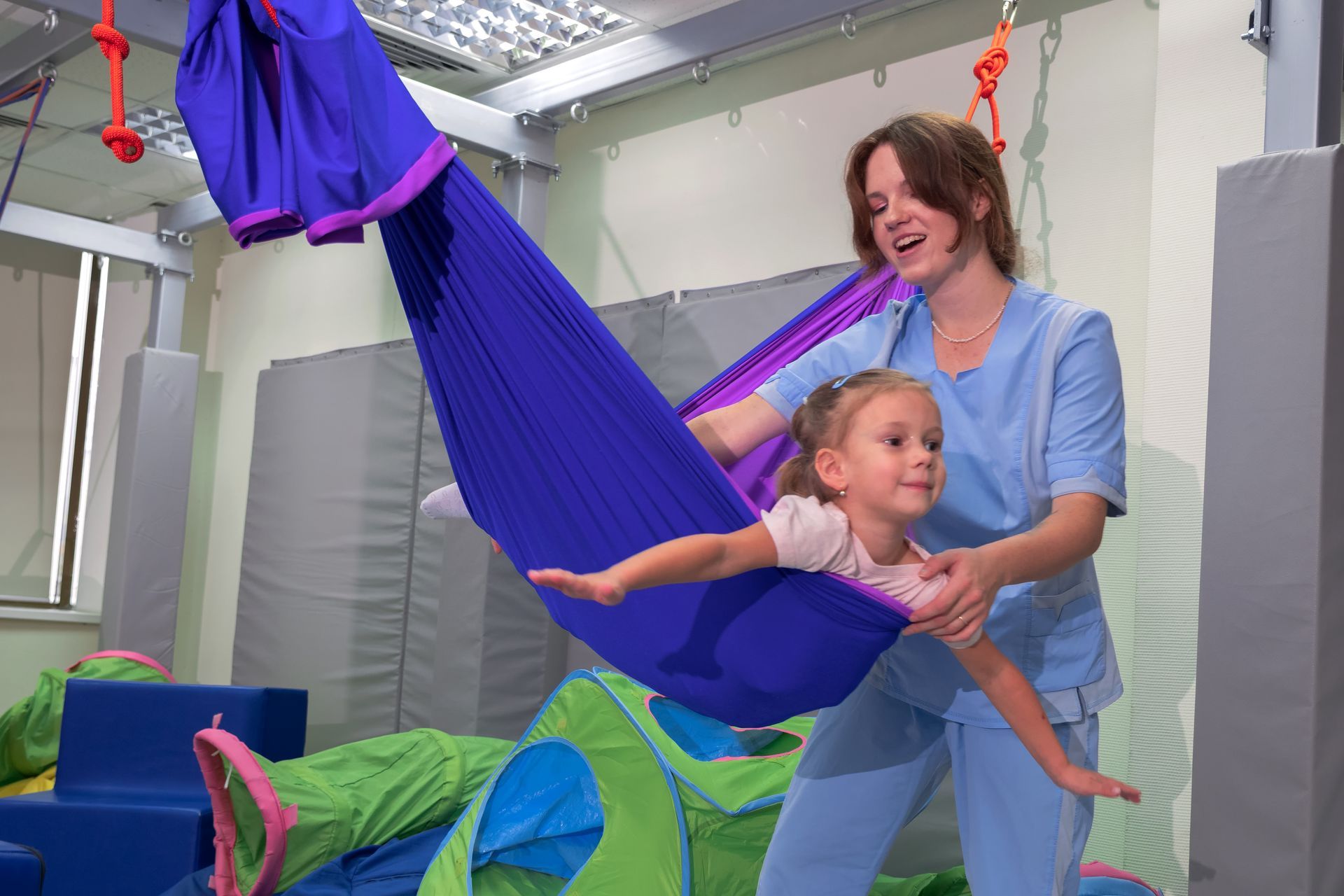Working in a transdisciplinary way

At helpz, we support a transdisciplinary model of care for our participants.
This approach to care involves our team of allied health professionals from different disciplines working together to provide integrated and planned support to meet our client's goals.
The practice is very much tailored to the individual. By keeping our participants at the centre and collaborating with our whole team, we provide a holistic support program that delivers better treatment outcomes. Each discipline shares its knowledge and skills, which provide input to support plans.
Transdisciplinary practice may involve two or more therapists across different disciplines depending on the individual's goals and needs; this may involve Occupational Therapists, Physiotherapists, Speech Pathologists, Music Therapists, Dieticians, Counsellors, Psychologists and/or Behaviour Practitioners.
Our participant's support network is an essential part of the transdisciplinary team and we work very closely with them. We will also collaborate with other specialists, caregivers, medical professionals, and schools to align goals and input on how therapy will be delivered to support the desired outcomes.

Working together
In practice a client may have a lead therapist who will work with them in a transdiciplinary way.
One therapist will incorporate another therapist's support program with their client.
For example, a Speech Pathologist might also work on an Occupational Therapist's goal by playing games that develop fine motor skills at the same time as working on their goal to develop speech.
If you would like to know more about our transdisciplinary model of care, please reach out and contact us.







